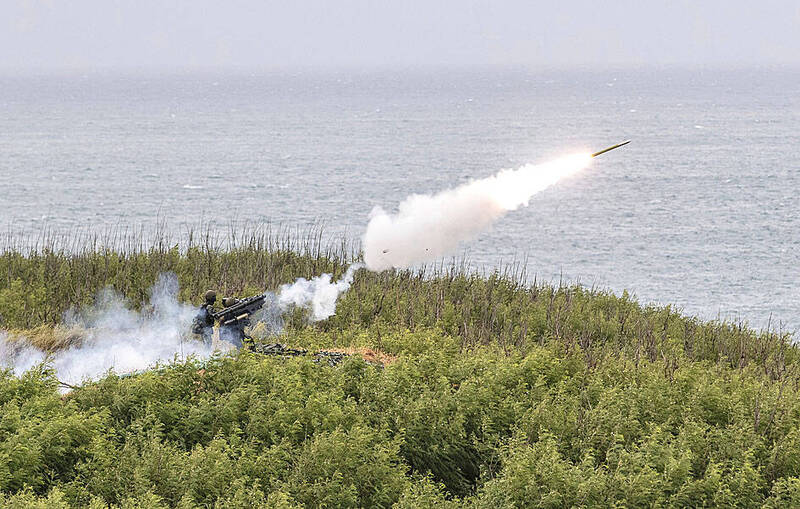Business
Taiwan Seeks Record $33 Billion to Strengthen Defense Capabilities

The Ministry of National Defense (MND) in Taiwan plans to request up to a record $33 billion in special funding aimed at enhancing the nation’s defenses against potential military threats from China. According to Wang Ting-yu, a senior lawmaker from the Democratic Progressive Party (DPP), this funding initiative reflects Taiwan’s response to escalating military pressure from Beijing.
The proposed budget ranges from NT$800 billion to NT$1 trillion (approximately $26.4 billion to $33.1 billion) over a span of seven years. The final figure remains undetermined as Taiwan is currently in discussions with the United States regarding possible arms sales that would be incorporated into this special budget. “We want to build a complete defense ecology to defend our country,” Wang stated, highlighting the plans as a substantial upgrade to Taiwan’s self-defense capabilities.
Strategic Enhancements and Military Collaboration
The proposed defense enhancements include the integration of Taiwan’s air defense systems, the acquisition of advanced technology from international partners to improve detection of small drones, rockets, and missiles, and an increase in the capacity to produce and stockpile ammunition for wartime scenarios.
Wang emphasized the necessity of advanced sensor and radar systems to counter China’s rapid military advancements, which include the development of fifth-generation fighters utilizing stealth technology. He underscored that without effective detection capabilities, Taiwan’s fire units would be rendered ineffective.
The government’s defense strategy arrives in the wake of President William Lai‘s announcement last month to elevate the defense budget for the upcoming year to NT$949.5 billion, which constitutes over 3 percent of Taiwan’s GDP. The long-term goal is to increase defense spending to 5 percent of GDP by 2030.
When asked if the proposed special defense budget would assist in trade negotiations with the United States, Wang responded affirmatively.
Legislative Process and Opposition Stance
The proposed spending plan requires approval from the Cabinet and must subsequently pass through the opposition-controlled legislature to take effect. Wang expressed hope that opposition parties would support the proposal, framing it as essential for Taiwan’s survival.
Chinese Nationalist Party (KMT) Legislator Huang Jen, co-chair of the Foreign Affairs and National Defense Committee, indicated that if the budget were submitted to the legislature, the KMT caucus would thoroughly discuss it before making a decision. “We understand the enemy threat and pressure from the US, but given limited resources, the key is how to spend money effectively,” Huang remarked.
According to Su Tzu-yun, a research fellow at the state-run Institute for National Defense and Security Research, Taiwan urgently needs to bolster its air defenses against a backdrop of increasing threats. He noted that China currently patrols the waters surrounding Taiwan with approximately eight warships, each capable of launching numerous cruise missiles. This situation raises concerns over the potential for surprise attacks that could target Taiwan’s critical military facilities within just three minutes.
Taiwan’s proposed defense budget underscores the island’s commitment to enhancing its military preparedness amid rising tensions with China, a move that reflects both domestic priorities and international pressures. As discussions progress, the outcome will have significant implications for Taiwan’s defense strategy and its relationship with key allies, particularly the United States.
-

 Business5 months ago
Business5 months agoKenvue Dismisses CEO Thibaut Mongon as Strategic Review Advances
-

 Lifestyle4 months ago
Lifestyle4 months agoHumanism Camp Engages 250 Youths in Summer Fest 2025
-

 Sports4 months ago
Sports4 months agoDe Minaur Triumphs at Washington Open After Thrilling Comeback
-

 Sports5 months ago
Sports5 months agoTupou and Daugunu Join First Nations Squad for Lions Clash
-

 Top Stories5 months ago
Top Stories5 months agoColombian Senator Miguel Uribe Shows Signs of Recovery After Attack
-

 World5 months ago
World5 months agoASEAN Gears Up for Historic Joint Meeting of Foreign and Economic Ministers
-

 Health4 months ago
Health4 months agoNew Study Challenges Assumptions About Aging and Inflammation
-

 Business5 months ago
Business5 months agoOil Prices Surge Following New EU Sanctions on Russia
-

 Entertainment4 months ago
Entertainment4 months agoDetaşe-Sabah Violin Ensemble Captivates at Gabala Music Festival
-

 Entertainment4 months ago
Entertainment4 months agoBaku Metro Extends Hours for Justin Timberlake Concert
-

 Top Stories5 months ago
Top Stories5 months agoRethinking Singapore’s F&B Regulations Amid Business Closures
-

 Business5 months ago
Business5 months agoU.S. House Approves Stablecoin Bill, Sends to Trump for Signature









